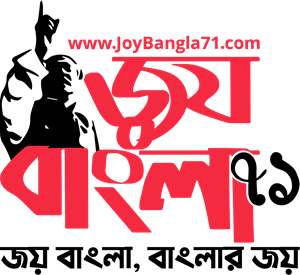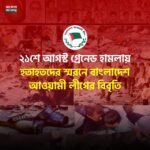আগামী পাঁচ বছরে আমরা কোথায় যাচ্ছি?
প্রথম অংশ
২০২৪ সালের ৫ আগস্ট বাংলাদেশের জন্য ছিল একটি যুগ-সন্ধিক্ষণ মুহূর্ত। ওই দিন দীর্ঘ টানা পনেরো বছরের এক ফ্যাসিবাদী শাসনের পতন হয় এবং জনতার বিপ্লবী জোয়ারে পুলিশ, বিচার বিভাগ ও সিভিল প্রশাসনসহ পুরো রাষ্ট্রীয় কাঠামো ভেঙে পড়ে। জুনে শুরু হওয়া কোটা বিরোধী সংস্কার আন্দোলন দ্রুতই সর্বগ্রাসী বিস্ফোরণে রূপ নেয় এবং কয়েক সপ্তাহের মধ্যে পুরোনো ফ্যাসিবাদী কাঠামোকে সম্পূর্ণভাবে ভেঙে ফেলে। ঘটনাটির আকস্মিকতা বিপ্লবী শক্তি ও অন্যান্য সংশ্লিষ্ট পক্ষ সবাইকে বিস্মিত করে। এমনই এক ঘটনা ঘটেছিল ১৯৭১-এ, যখন পাকিস্তান সেনাবাহিনীর রেখে যাওয়া পূর্ব পাকিস্তানের ধ্বংসস্তূপ থেকে ‘বাংলাদেশ’ আবির্ভূত হয়েছিল।
৫ আগস্ট দেশের রাজনৈতিক, সামাজিক, আর্থিক ও প্রশাসনিক ব্যবস্থাকে নতুন করে ঢেলে সাজানোর ও আধুনিকায়নের একটি সুবর্ণ সুযোগ এনে দেয়। বর্তমানে কিছু কমিশন কর্তৃক যেসব টুকরো-টাকরা সংস্কারের কাজ চলছে, তার বদলে ফরাসি বিপ্লবের স্বাধীনতা, সাম্য ও ভ্রাতৃত্ব—এই তিন আদর্শকে ভিত্তি করে সার্বিক সামাজিক পুনর্গঠনের দ্বার উন্মুক্ত হয়। বিশৃঙ্খল গণতন্ত্র থেকে বেরিয়ে বংশতন্ত্রমুক্ত একটি শক্তিশালী গণতান্ত্রিক ব্যবস্থায় রূপান্তরের একটি সুযোগ সৃষ্টি হয়। জাতীয় সম্পদের ন্যায্য বন্টনের মাধ্যমে অর্থনৈতিক মুক্তির সম্ভাবনা প্রবল হয়ে দেখা দেয়। সকল নাগরিকের সামাজিক সমতা ও ন্যায়বিচার নিশ্চিত করার পথ খুলে যায়। সেই সাথে ছদ্ম ‘ধর্মনিরপেক্ষতার আড়ালে চলা বৈষম্য দূর করে প্রকৃত ধর্মীয় স্বাধীনতা পুনঃপ্রতিষ্ঠা করার সম্ভাবনা জোরালো হয়।
দুঃখজনকভাবে, দেশটি ভিন্ন পথে গেল। সুযোগ গ্রহণের বদলে দ্রুত পরাজিত দলের রেখে যাওয়া শূন্যস্থান পূরণ করে পুরোনো কাঠামোকেই আবার জোড়া লাগানো হলো। পুলিশ, বিচার বিভাগ ও সিভিল প্রশাসন—সবই দলীয় নিয়ন্ত্রণে চলে গেল; গুরুত্বপূর্ণ পদ হঠাৎ করে দখল হলো; এবং জুলাই বিপ্লবের দোষীদেরকে শাস্তি দেওয়ার আগেই সরকারি নিয়ম ভেঙে দ্রুত পদোন্নতি ঘটতে থাকলো। আগের শাসকগোষ্ঠীর সম্পদ ও ব্যবসা হাতবদল হলো এবং বেআইনি চাঁদাবাজি চলতে থাকলো। দেশের সর্বত্র বিভিন্ন পোস্টারে শেখ মুজিব, শেখ হাসিনা ও সজীব ওয়াজেদ জয়ের ছবির বদলে নতুন মুখমণ্ডল শোভা পেতে লাগল। মহাসড়ক ও প্রধান সড়কে নির্মিত বিভিন্ন তোরণে বিএনপি নেতৃবৃন্দের ছবি আমাদের স্পষ্টতই বুঝিয়ে দিল যে পুরনো চর্চাই অব্যহত থাকবে। সারকথা,পুরাতন শিকারীর দলকে একটি নুতন শিকারীর দল প্রতিস্থাপন করল।
বিপ্লবের অবক্ষয় শুরু হয় অন্তর্বর্তী সরকারের গঠন থেকেই। প্রেসিডেন্ট ও সেনাপ্রধানের তত্ত্বাবধানে আসিফ নজরুল, ছাত্রনেতারা ও রাজনৈতিক দলের প্রতিনিধিরা সদস্য বাছাই করেন। নতুন দায়িত্ব পালনের যোগ্যতা আছে কি না, সে বিচার না করেই সবাই নিজ দলের লোক ঢুকাতে তৎপর হন। প্রধান উপদেষ্টা হিসেবে ড. (মুহাম্মদ) ইউনুসকে নিয়োগ দেওয়া সঠিক সিদ্ধান্ত হলেও, অন্য সদস্যদের রাষ্ট্রপরিচালনার প্রাজ্ঞতা কম ছিল। তারা তাদের পৃষ্ঠপোষক দলের নির্দেশমুখী ছিলেন—ফলে শুরু থেকেই সরকার দুর্বল হয়ে পড়ে।
ড. ইউনুসকে প্রধান উপদেষ্টা করা নিঃসন্দেহে একটি ভাল সিদ্ধান্ত ছিল। বিপ্লবের পর তিনি জাতীয় ঐক্যের কেন্দ্রবিন্দুতে পরিণত হন। তাঁর বৈশ্বিক সুনাম ভারতের ‘ইসলামী মৌলবাদ’ ও ‘সংখ্যালঘু’ কার্ডকে অকার্যকর করে দেয় এবং বাংলাদেশকে পশ্চিমা বলয়ের সঙ্গে নতুনভাবে সংযুক্ত করে। বিশ্বনেতাদের সঙ্গে তাঁর যোগাযোগ দেশের অর্থনীতিকে মুক্তপতন থেকে ঘুরিয়ে স্থিতাবস্থায় আনে।
তবে, ইতিবাচক গুনাবলী থাকা স্বত্বেও ড. ইউনুস রাষ্ট্র পরিচালনার কাদাজলে নামার মতো নির্মম বাস্তববাদী নন। তাঁর বয়সও বাড়ছে দ্রুত। তবুও দেশটির তাকে প্রয়োজন ছিল সঙ্কটকালের দিশারি হিসেবে। অন্যদিকে সরকার প্রতিটি পদক্ষেপে হোঁচট খেতে থাকে কেননা রাজনৈতিক দলগুলো বিশেষ করে বিএনপি নির্বাচনের নামে যত দ্রুত সম্ভব তাদের জায়গা নেওয়ার জন্য অবিরাম চাপ সৃষ্টি করতে থাকে।
উপদেষ্টা নিয়োগে সবচেয়ে বেশি লাভবান হয় বিএনপি। তারা পছন্দের উপদেষ্টাদের গুরুত্বপূর্ণ মন্ত্রিপদে বসাতে এবং আলী ইমাম মজুমদারকে ড. ইউনুসের বিশেষ সহকারী হিসাবে নিয়োগ দিতে সমর্থ হয়। এই সেতুবন্ধ দিয়ে তারা পুলিশ, বিচার বিভাগ ও প্রশাসনের নানা গুরুত্বপূর্ণ স্থানে নিজেদের পছন্দের লোক নিয়োগ করে। ফলশ্রুতিতে দেশে চারটি পৃথক ক্ষমতাকেন্দ্র তৈরি হয়—একটি ড. ইউনুসের অধীনে অন্তর্বর্তী সরকার, একটি বিএনপির অধীনে, একটি সেনাবাহিনীর অধীনে ও একটি ছাত্রদের অধীনে। বর্তমানে এই চারটি ক্ষমতাকেন্দ্র চারটি সমান্তরাল প্রশাসন চালাচ্ছে। স্বাভাবিকভাবেই, এদের স্বার্থগুলো প্রায়শঃই সাংঘর্ষিক হয় এবং সরকারের কার্যক্রমে বাঁধা সৃষ্টি করে।
ছাত্রবিপ্লবীদের ভুল ছিল – নতুন বাংলাদেশ গড়ার অঙ্গীকার নিয়ে সামনে এগোনোর বদলে বিদ্যমান রাজনৈতিক কাঠামোয় যোগ দিয়ে নিজেদের দল গঠন করা। জুলাই ঘোষণার বিষয়ে দ্বিধা-দ্বন্দ্ব এবং আগামী নির্বাচনে অংশগ্রহণের সিদ্ধান্ত—এ দুটিই তাদেরকে পুরনো রাজনৈতিক কাঠামোতে ঠেলে দেয়। অভিজ্ঞতা ও সুস্পষ্ট দৃষ্টিভঙ্গির অভাবে তারা বিএনপি ও অন্যান্য দলের প্রভাবে দল গঠন করে, যার ফলে তাদের বিপ্লব-পরবর্তী আধিপত্য ক্ষয়প্রাপ্ত হয়। ফলে দেশকে ঢালাও পুনর্গঠনে বর্তমান অন্তর্বর্তী সরকারকে পুরোপুরি সমর্থন দিতে তারা ব্যর্থ হয়। যে পুরনো সিস্টেমকে ভেঙে তারা নতুন একটি সিস্টেম গড়তে চেয়েছিল, শেষ পর্যন্ত তারই ফাঁদে তারা আটকা পড়ে। ফলে দুর্বল ও পর্যাপ্ত জনসমর্থনহীন অন্তর্বর্তী সরকারকে সেইসব গোষ্ঠী চাপে রাখে, যারা আন্দোলনের ফ্রন্টলাইনে কখনও ছিল না, কিন্তু বিপ্লবের ফসল কুড়াতে ও ক্ষমতায় আসার জন্য উন্মুখ ছিল। এভাবেই আমরা আধুনিক বাংলাদেশ গড়ার বিরল সুযোগ হাতছাড়া করে ফেলি।
দীর্ঘদিনের প্রতিদ্বন্দ্বী আওয়ামী লীগের দ্বারা নিপীড়িত বিএনপি এখন এক প্রতি-বিপ্লবী শক্তি। তারা ফ্যাসিবাদী শাসকদল ও তার ছাত্রসংগঠন নিষিদ্ধকরণ, প্রেসিডেন্ট পরিবর্তন, সংবিধান বাতিল, গভীর কাঠামোগত সংস্কার—এসব বিপ্লবী পদক্ষেপের ক্রমাগত বিরোধিতা করে যাচ্ছে। বিএনপি স্থিতাবস্থার (status quo) পক্ষপাতী, কেননা দ্বি-দলীয় রাজনীতিতে তাদের পুরনো প্রতিদ্বন্দ্বী প্রায় অনুপস্থিত যা তাদেরকে সহজেই নির্বাচনী বৈতরণী পার হওয়ার পথ উন্মুক্ত করে দিয়েছে। ছাত্রশক্তি তাদের কাছে একটি বিরাট ধাঁধা। এ কারণে আওয়ামী লীগকে বিলুপ্ত করে ছাত্রশক্তিকে অন্তর্ভুক্ত করে একটি নতুন গণতান্ত্রিক কাঠামো তৈরি করতে তারা অনাগ্রহী। তাদের ধারণা এই নতুন রাজনৈতিক কাঠামো তৈরি হলে নতুন নতুন মাত্রা (dimension) সৃষ্টি করবে যা তাদের ক্ষমতায় যাওয়ার যে সুবর্ণ সুযোগ সৃষ্টি হয়েছে তা নষ্ট করে দেবে। বরঞ্চ ছাত্রশক্তিকে যদি পুরনো রাজনৈতিক কাঠামোতে অন্তর্ভুক্ত করা যায় তবে তা একসময় ‘নাগরিক ঐক্য’র মতোই ক্ষয়ে যাবে।
বর্তমানে বাংলাদেশ পরস্পরবিরোধী স্বার্থ ও মতাদর্শের এক জটিল জালে আবদ্ধ। কেয়ারটেকার সরকার না জাতীয় ঐক্য সরকার; সুষ্ঠ নির্বাচন আদৌ সম্ভব কি সম্ভব না; আওয়ামী লীগ ও তার ছাত্রসংগঠন থাকবে কি থাকবে না; সংস্কার আগে না নির্বাচন আগে; পুরোনো সংবিধান না নতুন সংবিধান—এমন বহু প্রশ্নে তর্ক চললেও কোনো ঐক্যমত দেখা যাচ্ছে না। বরঞ্চ ব্যক্তিবিশেষ ও রাজনৈতিক দলসমূহ নিজেদের সম্পদ ও প্রভাব খাটিয়ে প্রাধান্য অর্জনের প্রতিযোগিতায় নেমেছে।
চলবে…………
Where are we headed in the next five years?
First Part
On August 5th, 2024, Bangladesh experienced a watershed moment. A fifteen-year fascist regime was overthrown, and its old state structure, including the police, judiciary, and civil administration, was dismantled by revolutionary fervour that swept across the country. The revolution, which started with the quota reform movement in June, quickly escalated into a full-blown eruption, burying the old fascist structure within weeks. This event puzzled revolutionaries and other stakeholders. A similar event happened in 1971 when Bangladesh emerged from the ashes of East Pakistan left behind by the Pakistan Army.
August 5th offered a vista of golden opportunities for Bangladesh to rebuild and modernise its political, social, economic, and administrative systems. It presented a rare opportunity to implement a comprehensive social reconstruction based on French revolutionary ideals of Liberty, Equality, and Fraternity, instead of incremental reforms proposed by a few commissions. An exceptional prospect surfaced to transition the country from chaotic democracy to a robust democratic system free from dynasty-based rule. A fantastic chance was created for economic emancipation through an equitable distribution of national wealth, ensuring social equality and justice for all citizens. And finally, a lucrative opportunity was created for restoring religious freedom ending discriminatory practices concealed under secularism.
Regrettably, the country took a different turn. Instead of seizing opportunities, it quickly reassembled the old structures by filling in the gaps left by the defeated party. The police, judiciary, and civil administration were all taken over by the surviving major political party, leading to the rapid capture of important posts and accelerated promotions flouting government rules. The properties and businesses of the past regime changed hands and illegal toll extortions continued. The photographs of Sheikh Mujib, Sheikh Hasina, and Sajib Wajed Joy displayed in the posters were replaced by a new set of faces and highways and major roads were adorned with the images of the leaders of BNP, signaling the continuation of old practices. In essence, one group of predators was just replaced by another.
The degeneration of the revolution began with the formation of the interim Government. Mr. Asif Nazrul, student coordinators, and political party representatives selected its members under the tutelage of President and Army Chief. Every interested party sought as many candidates as possible, disregarding their ability to handle the new responsibilities. While appointing Mr. Yunus as Chief Advisor was wise, the other members lacked statecraft and followed their sponsoring party’s instructions, making the Government weak from the start.
Dr. Yunus’ appointment as Chief Advisor was a brilliant choice. He became a national rallying point after the revolution. With his reputation abroad, he effectively thwarted Indian ‘Islamic fundamentalism’ and ‘minority’ cards by courting favour from the West. His connections with global leaders restored Bangladesh’s economy from a free fall to an even keel. However, despite his positive qualities, Dr. Yunus was too civilized to swim in the muddy water of statecraft and was ageing rapidly. Despite these challenges, the nation needed him during the crisis to guide it. The government stumbled at every step, facing constant pressure from the parties that vied to replace them as quickly as possible.
BNP benefited most by appointing favoured advisors to key cabinet positions and Mr Ali Imam Mozumder as special assistant to Dr Yunus. Through these connections, they strategically placed their chosen individuals in crucial appointments within the police, judiciary, and civil administration. This led to four distinct power centres, each with its own parallel administration: one led by Dr Yunus, another by BNP leadership, a third by the Army leadership, and a fourth by the student leadership. In such a milieu, it is understandable that interests of these groups would constantly collide with each other, hindering the effective functioning of the Government.
The student revolutionaries’ mistake was joining the existing political structure by forming their own party instead of building a new Bangladesh. Their ambivalence in declaring the July Proclamation and decision to participate in the forthcoming election led to their return to the old system. Inexperienced and lacking a clear vision, they were swayed by BNP and other parties into forming a party that stripped them of their post-revolutionary dominance. They failed to remain a revolutionary force backing the current interim government that faced the formidable task of implementing sweeping reforms. Instead, they were ensnared in the antiquated system they sought to replace. The weak interim government, lacking support, faced pressure from groups who never had been at the forefront during the uprising but wanted to hijack the fruits of the revolution and be in power. As a result, the nation missed the chance of establishing a modern Bangladesh.
BNP, which had long faced persecution from its archrival Awami League, is now a counter-revolutionary force. They opposed the current Government’s revolutionary moves, such as banning the fascist regime and its student wing, changing the President, abrogating the Constitution, and implementing deep reforms. BNP supports the status quo because it’s more comfortable with the earlier bipartisan politics where its major opponent is now almost non-existent. They believe a cakewalk election is inevitable and see the student force as a jigsaw puzzle. They are reluctant to confront the student body within a new democratic framework, fearing that the power they now have a chance to seize could slip away if the old system is dismantled and new dynamics emerge. BNP expects that if the student body is absorbed into the old structure, it will bleed out like ‘Nagorik Oikko’.
Bangladesh is currently in a complex web of competing interests and conflicting ideologies. Various groups are vying for greater influence and political gain, with key issues at stake, including the formation of a caretaker government or a national unity government, the possibility of holding a free-fair election, the fate of the Awami League and its student wing, the prioritisation of reforms or elections, and the choice between using the old or a new constitution for elections. Despite these debates, no consensus seems to be in sight, leading to a situation where individuals are using their resources to outmanoeuvre others for dominance.
To be continued…………







